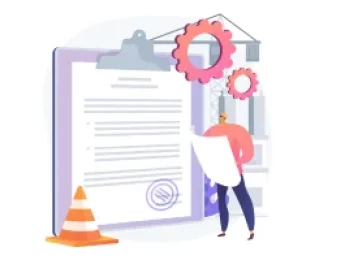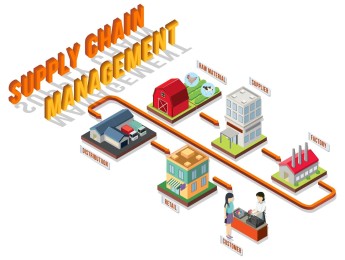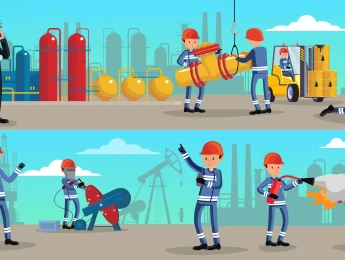For many vital industries, there is a strong focus on maintaining many processes and facilities to ensure they can function effectively. Reliability-focused maintenance is a valuable method that reduces upkeep costs and functions downtime.
Due to its efficiency, reliability-focused maintenance has a long history within the aviation, pharmaceutical, and military sectors. It involves a thorough risk management process to identify all potential risks of all functions. Alongside general preventative measures and corrective actions, reliability maintenance guarantees that these functions have minimal impact on overall business function and the health and safety of those involved.
Organisations using this method will thoroughly understand each function's potential failures and potential detriments. This in-depth understanding of failure will allow for better insight into how to perverse the function and avoid failures. With these in mind, the correct individuals can create an ideal maintenance plan and schedule to ensure the function's full productivity.
Upon completion of this course, participants will be able to:
- Understand the importance of reliability-focused maintenance within an organisation.
- Assess the concepts, principles, and standard practices of reliability-focused maintenance.
- Compare the advantages and disadvantages of reliability-focused maintenance.
- Recognise the consequences of poor reliability-focused maintenance for an organisation.
- Evaluate health and safety regulations relevant to the maintenance progress to ensure full compliance.
- Explore the types of organisations and industries for which reliability-focused maintenance is best suited.
- Incorporate risk management into reliability-focused maintenance to ensure the full safety of all individuals involved.
This course is designed for anyone responsible for function maintenance and those who wish to increase their knowledge of reliability-focused maintenance. It would be most beneficial for:
- RCM Engineers
- Contracts and Sub-contractors
- Operations Managers
- HSE Officers
- Risk Analysts
- Senior Engineers
- Risk Managers
This course uses a variety of adult learning styles to aid full understanding and comprehension. Participants will review real-world examples of maintenance actions and schedules to highlight key factors influenced by reliability-focused maintenance and potential areas of further risk.
The participants will be granted various opportunities to fully develop their understanding of the taught content by partaking in various learning methods, including presentations, video materials, demonstrations, and practical activities. This combination of methods will ensure they can develop a comprehensive understanding of the knowledge and related practical skills.
Day 5 of each course is reserved for a Q&A session, which may occur off-site. For 10-day courses, this also applies to day 10
Section 1: Introduction to Maintenance
- Define what maintenance is within an organisation and its importance and necessity.
- Who is typically involved in the maintenance process, and what are their skills, competencies, and responsibilities?
- Investigate common maintenance methods and their benefits and limitations.
- Assess past and current maintenance trends and predict future changes.
- Standard practices throughout different industries.
Section 2: Reliability Focused Maintenance
- Understanding what reliability-focused maintenance is.
- Explaining the concepts, principles, and purpose of reliability-focused maintenance.
- Evaluating and comparing the advantages and disadvantages and deciding what organisations or industries it’s best suited for.
- Examining the history of reliability-focused maintenance and how it has evolved.
- Utilising this as a method of cost-efficiency.
Section 3: Risk Management
- The importance of managing risks when conducting any level of maintenance.
- Conducting a risk assessment to identify hazards and risks.
- Analysing risk data to create a risk management plan detailing all risks, all established preventative measures and potential corrective actions.
- Ensuring all health and safety procedures are accessible and understood by all necessary individuals.
- Assessing relevant health and safety regulations to ensure full compliance.
- Utilising various risk analysis methods – FMEA, HAZOP, FTA and RBI.
Section 4: Implementation
- Quantifying current risks and costs and how these can be minimised without sacrificing quality.
- Identify all business functions and prioritise them based upon various factors – cost, reliability, and potential risks.
- Createg plans and actions for each individual function detailing their required maintenance and the timeframe.
- Understanding the failure process and the potential consequences on business function, health, and safety.
Section 5: Monitoring Performance
- Consistently monitoring function performance.
- Measuring the performance of functions during the maintenance process to ensure safety and function.
- Analysing performance data and making necessary adjustments to maintenance plans and schedules.
- Adjusting budget and costs when necessary.
Upon successful completion of this training course, delegates will be awarded a Holistique Training Certificate of Completion. For those who attend and complete the online training course, a Holistique Training e-Certificate will be provided.
Holistique Training Certificates are accredited by the British Assessment Council (BAC) and The CPD Certification Service (CPD), and are certified under ISO 9001, ISO 21001, and ISO 29993 standards.
CPD credits for this course are granted by our Certificates and will be reflected on the Holistique Training Certificate of Completion. In accordance with the standards of The CPD Certification Service, one CPD credit is awarded per hour of course attendance. A maximum of 50 CPD credits can be claimed for any single course we currently offer.
- Course Code IND21-113
- Course Format Classroom, Online,
- Duration 5 days













